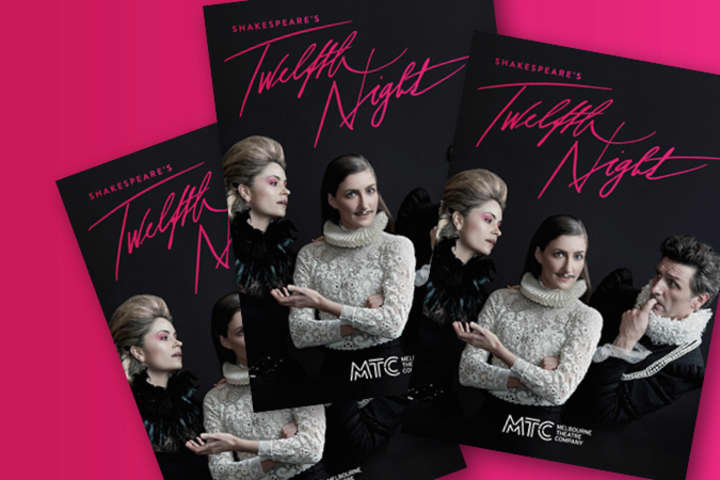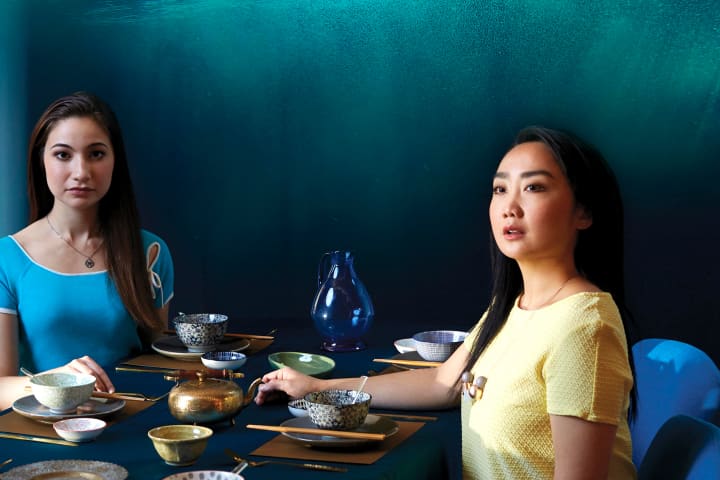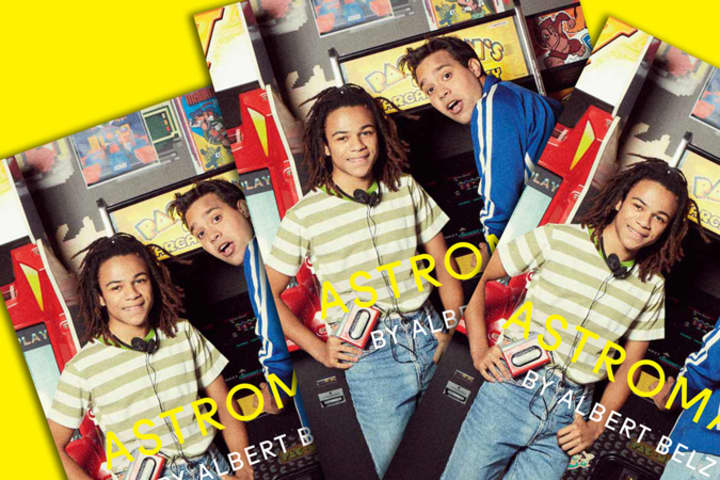Director Petra Kalive provides insight into the creative development for Jean Tong’s exciting new play Hungry Ghosts, which is currently in rehearsal.
From March 5 to 9, the cast and creative team of Hungry Ghosts met at MTC HQ for a creative development of Jean Tong’s new play. Hungry Ghosts is a play about identity, says director Petra Kalive. ‘Jean Tong’s play has three central threads: the fate of Malaysian Airlines flight MH370, corruption and the 1MDB scandal in Malaysia, and the exploration of identity after migrating from Malaysia to Australia. The three threads all speak to loss. Feeling lost, and asking who we are. The play asks: how do you define identity?’
By this time, Eugyeene Teh’s set had been manufactured by the Workshop team, so Kalive was able to work with it during the development. ‘It was fantastic to have the design team present for the development, because the lighting, costume, set and sound design are integral to the dramaturgy of this work.’ Kalive and the team made discoveries, such as the rumbling sound the set pieces made when the cast rolled them around the stage, and discussed potentially embedding lights in the set pieces to create an architectural horizon line. ‘The set evokes the idea of a plane, but also of a prawn – referencing the pistol shrimp that’s mentioned in the first scene of the play – and also of a coffin. With the embedded lighting, we can play with the idea of what is above and below the surface.’ Elaborating on the pistol shrimp, Petra explains that the small crustacean creates a bubble when it snaps its claw shut, and the noise that this cavitation bubble makes when it collapses is loud enough to interrupt military and scientific sonar. ‘Playwright Jean Tong uses it as a metaphor,’ says Petra, ‘to unpack the idea of how one small lone voice, although lost in vacuum, can have a large impact on the world around it.’
‘I always use text as a baseline,’ says Petra, ‘then I find ways to physicalise through image-making.’ One technique Kalive uses was inspired by New York-based ensemble company Witness Relocation. Led by director/choreographer Dan Safer, Witness Relocation produces script-based plays, but also original devised dance/theatre pieces. ‘I participated in a workshop with Witness Relocation in Brisbane, and discovered a movement tool that I loved. We used it in Melbourne Talam last year.’ The movement tool Petra describes involves cast members choosing words from the script that resonate with them, and assigning an action to each word. These actions are then part of a movement repertoire that could be used non-naturalistically throughout the work, e.g. a movement sequence. Petra used the tool during the development week for Hungry Ghosts, and the cast chose words including ‘family’, ‘corruption’, ‘identity’, and ‘loss’.
‘Jean Tong is a fiercely intelligent playwright with something to say,’ says Kalive, identifying the biggest challenge of the creative development process to be the density of the script. ‘Its complexity is at once exciting and terrifying,’ she says, but playwright Jean Tong has confidence in Kalive’s skill. ‘She’ll be able to hone some of my more conceptual ideas down to something that’s integrated with the physicality of the actors onstage,’ says Tong. ‘I’m excited to see how she’ll make sense of the whole play on the floor. The questions she’ll ask during developments and rehearsals will tell me a lot about the play, and the answers she’ll bring to some of those questions will be more interesting than anything I could come up with.’
In Chinese Buddhism, ‘hungry ghosts’ are beings driven by intense emotional needs and only manifest from tragedy or ‘evil deeds’. Further back, in very early Chinese and Vietnamese mythology, hungry ghosts are those who have been deceitful, greedy people and their karma is an insatiable hunger. ‘Jean Tong’s hungry ghosts are seekers,’ says Kalive, ‘but they also exist in and embody corruption, another central tenant of the work.’
‘I hope to create a work that is emotionally affective, a piece of theatre that agitates, and connects with its audience,’ says Kalive. ‘In order to get people thinking, you have to connect with them first.’
Hungry Ghosts plays at Southbank Theatre, The Lawler 3 – 19 May, before commencing a Regional Tour.
Published on 12 April 2018





